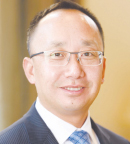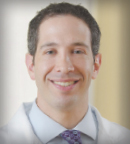
Jun J. Mao, MD, MSCE
Pain, a debilitating consequence of cancer and its treatments, is highly prevalent among patients with advanced cancer.1 Often persistent and undertreated, it is associated with poor functional and emotional well-being and typically occurs along with insomnia and fatigue.2 The use of opioids, the mainstay in cancer pain management, is facing increased scrutiny because of their abuse potential, which is reaching epidemic proportions. There is also growing patient concern about the adverse effects of opioids, and, consequently, nonpharmacologic approaches for pain relief are often preferred.3
Acupuncture, an integral component of traditional Chinese medicine, involves inserting fine needles in predetermined points of the body. The needles are sometimes stimulated with electricity to enhance the therapeutic effect. Massage involves manipulating muscles and soft tissues of the body to increase circulation and promote relaxation.

Andrew S. Epstein, MD
Acupuncture has been shown to ameliorate pain in patients with cancer,4 with long-term reductions reported in studies of cancer survivors.5,6 Massage therapy also has demonstrated benefit against pain in cancer populations,7 including those receiving hospice care,8 although the improvements were short-lived. Of note, ASCO and the Society for Integrative Oncology published a joint guideline in 2022 recommending acupuncture and massage for managing cancer pain.9 However, the long-term effects of these modalities and their comparative effectiveness in patients with advanced cancer are not known.
The IMPACT Trial
The IMPACT study was conducted at Memorial Sloan Kettering Cancer Center and regional sites in New York, New Jersey, and Florida to evaluate the long-term comparative effectiveness of acupuncture vs massage for pain in patients with advanced cancer. The trial included 298 participants with pain for at least 1 month and for at least 15 of the preceding 30 days; these individuals were deemed by a clinician to have an expected prognosis of at least 6 months. They were randomly assigned to receive 10 weekly sessions of acupuncture or massage, with monthly booster sessions up to 26 weeks.
The primary outcome—change in worst pain intensity score from baseline to 26 weeks—was measured using the Brief Pain Inventory (BPI ranging from 0–10; higher numbers indicate worse pain intensity or interference). The secondary outcomes included fatigue, insomnia, and quality of life.
The demographic and clinical characteristics of participants in both groups were similar at baseline. A total of 78% of the patients had solid tumors, with the top cancer types being hematologic, breast, gynecologic, and gastrointestinal. The mean patient age was 58.7 years. A total of 200 patients were women, 220 were White, 33 were Black, and 46 were Hispanic. The mean BPI pain severity score and pain duration were 6.9 points and 3.8 years, respectively, with 98 patients receiving opioids at baseline.
Findings showed that both acupuncture and massage lowered the worst pain score from baseline to week 26. Acupuncture resulted in a mean change of −2.53 (95% confidence interval [CI] = −2.92 to −2.15) points; and massage resulted in a mean change of −3.01 (95% CI = −3.38 to −2.63) points, with no significant difference between the treatments (−0.48; 95% CI = −0.98 to 0.03; P = .07). Both groups also reported improvements in pain-related functional interference, fatigue, insomnia, and physical quality of life. Of note, at week 26, the number of patients using pain medications decreased from 54.7% (95% CI = 40.6%–68.1%) at baseline to 27.5% (95% CI = 14.1%–46.7%) in the acupuncture group and to 35.6% (95% CI = 19.7%–55.4%) in the massage arm.
Adverse events were mostly mild, with bruising, localized pain, and bleeding in the acupuncture group.10 Transient soreness and headache were observed in patients who received massage.10
Concluding Thoughts
In light of innovative treatments extending the lives of patients with advanced cancer and the myriad challenges associated with opioid use for pain relief, there is a critical need for safe and effective options. New data from the IMPACT trial, for the first time, showed the benefits of both acupuncture and massage in producing sustained pain reductions in patients with advanced cancer. The therapies were safely delivered during the COVID-19 pandemic. Given the increased availability of these modalities at the majority of cancer centers, oncology providers should consider incorporating them into the overall pain treatment plan—ultimately to enhance the quality of life for this population. To use these therapies, it is important to seek credentialed practitioners who have training or experience in working with patients who have cancer.
DISCLOSURE: Dr. Mao has received institutional research funding from Tibet Cheezheng Tibetan Medicine Co Ltd. Dr. Epstein receives royalties from Up-To-Date for peer reviewing GI medical oncology and palliative care topic reviews, and received honoraria for 2023 presentations of “Integration of Supportive Care in Oncology” at HMP Global Learning Network’s Great Debates and Updates in Gastrointestinal Malignancies.
REFERENCES
1. van den Beuken-van Everdingen MHJ, et al: J Pain Symptom Manage 51:1070-1090.e9, 2016.
2. Dong ST, et al: J Pain Symptom Manage 48:411-450, 2014.
3. Liou KT, et al: Support Care Cancer 29:427-435, 2021.
4. He Y, et al: JAMA Oncol 6:271-278, 2020.
5. Mao JJ, et al: JAMA Oncol 7:720-727, 2021.
6. Hershman DL, et al: JAMA 320:167-176, 2018.
7. Boyd C, et al: Pain Med 17:1553-1568, 2016.
8. Kutner JS, et al: Ann Intern Med 149:369-379, 2008.
9. Mao JJ, et al: J Clin Oncol 40:3998-4024, 2022.
10. Epstein AS, et al: JAMA Netw Open 6:e2342482, 2023.
Dr. Mao, Guest Editor of The ASCO Post’s Integrative Oncology series, is the Laurance S. Rockefeller Chair in Integrative Medicine and Chief of the Integrative Medicine Service at Memorial Sloan Kettering Cancer Center, New York. Dr. Epstein is a medical oncologist and palliative care clinician investigator at Memorial Sloan Kettering Cancer Center, New York.

